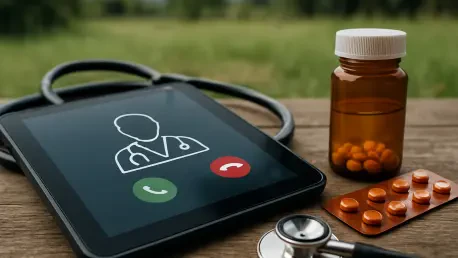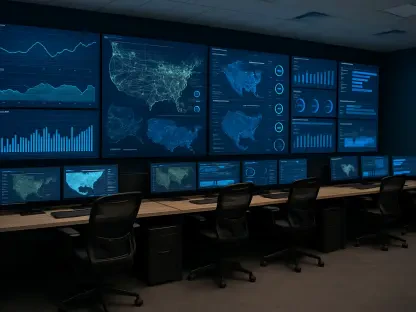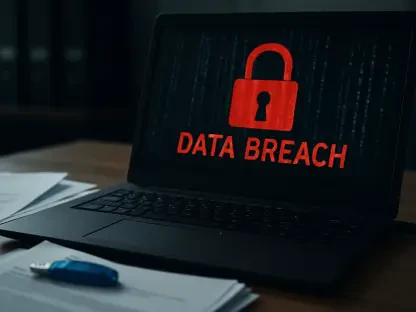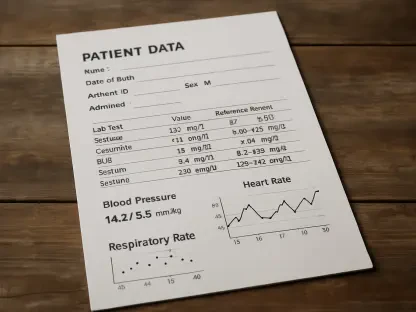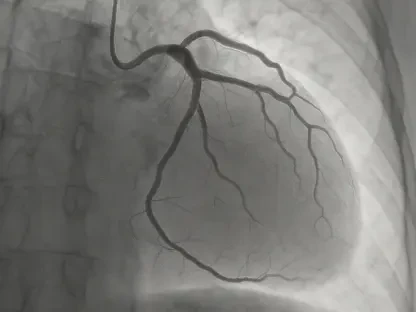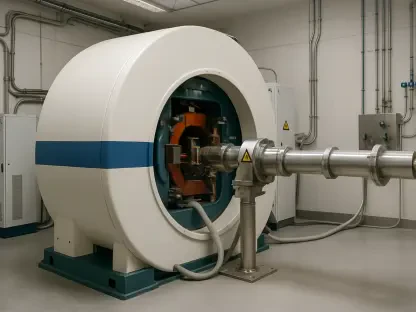In an era where healthcare challenges continue to mount, with over 133 million Americans grappling with chronic conditions, the promise of technology to transform care delivery has never been more critical. Imagine a world where patients in rural areas or underserved communities can receive real-time health monitoring without stepping foot in a hospital. This vision is becoming reality through the efforts of innovative companies and collaborative organizations dedicated to remote patient monitoring (RPM). Among these trailblazers stands Tenovi, a leading remote health solution provider, which has recently joined the Remote Monitoring Leadership Council (RMLC). This membership marks a significant step toward addressing systemic issues like high costs and limited access, while pushing the boundaries of what connected care can achieve. By aligning with industry leaders, Tenovi is poised to play a pivotal role in redefining how healthcare reaches those who need it most.
Advancing Technology in Healthcare
Pioneering Device-Agnostic Solutions
Tenovi’s approach to remote healthcare hinges on its cutting-edge, device-agnostic platform, which allows seamless integration of various health monitoring tools into a unified system. This flexibility ensures that health systems, payers, and care teams can deploy RPM and remote therapeutic monitoring (RTM) programs without being tied to specific hardware. The proprietary Cellular Gateway further enhances this capability by enabling secure and reliable data transmission, even in areas with limited connectivity. Such innovation is vital for scaling digital health solutions across diverse populations, particularly for those who face barriers to traditional care. By focusing on automation and data aggregation, Tenovi empowers clinicians to make informed decisions quickly, ultimately improving patient outcomes. This technological foundation reflects a broader trend in the industry toward adaptable, user-friendly systems that prioritize efficiency and reach.
Enhancing Care Through API-Driven Services
Beyond hardware compatibility, Tenovi leverages API-driven services to streamline the deployment of remote monitoring programs, making it easier for healthcare providers to integrate these tools into existing workflows. This approach minimizes disruption while maximizing the potential for personalized care plans tailored to individual patient needs. For instance, real-time data sharing allows care teams to track vital signs and adjust treatments proactively, reducing the risk of complications for chronic condition sufferers. The emphasis on interoperability also aligns with the growing demand for cohesive digital health ecosystems that connect disparate stakeholders. Tenovi’s commitment to such advancements underscores the importance of technology not just as a tool, but as a bridge to equitable care. As digital health continues to evolve, these services are setting a benchmark for how innovation can directly translate into better health management.
Collaborative Efforts for Systemic Change
Driving Policy and Best Practices with RMLC
Tenovi’s membership in the Remote Monitoring Leadership Council (RMLC) represents a powerful alliance aimed at shaping the future of connected care through policy advocacy and the establishment of industry best practices. The RMLC brings together prominent players in the healthcare sector to address critical barriers to RPM adoption, such as regulatory hurdles and reimbursement challenges. By collaborating with policymakers, the Council seeks to create a framework that ensures remote monitoring delivers measurable value to patients, clinicians, and payers alike. Tenovi’s involvement amplifies this mission, as the company brings a unique perspective on scalable technology solutions to the table. This partnership highlights the necessity of collective action to standardize remote monitoring as a norm, especially for managing chronic diseases across diverse demographics.
Fostering Equity in Digital Health Infrastructure
Another key focus of the collaboration between Tenovi and the RMLC is the push for equitable digital health infrastructure that leaves no patient behind. With millions of Americans still lacking access to reliable internet or advanced medical services, the need for inclusive solutions is urgent. The Council’s shared principles emphasize reaching underserved populations through innovative approaches and supportive policies. Tenovi contributes by ensuring its platforms are accessible and adaptable to varying technological environments, thereby reducing disparities in care delivery. This effort is not merely about expanding reach but also about building trust in digital tools among communities historically sidelined by healthcare systems. The combined expertise of RMLC members fosters a comprehensive strategy to tackle these inequities, paving the way for a future where remote healthcare is a universal standard rather than a privilege.
Reflecting on Milestones and Looking Ahead
Building on Past Achievements
Looking back, Tenovi’s remarkable ascent as the No. 11 healthcare company on the Inc. 5000 list of America’s fastest-growing private companies spoke volumes about its impact on the remote health landscape. The recognition as No. 1 in New Hampshire and No. 2 in Boston further cemented its status as a regional leader with national influence. These accolades were not just numbers but a testament to the company’s dedication to transforming care through technology. Membership in the RMLC added another layer of credibility, as it positioned Tenovi alongside other innovators committed to systemic improvement. This alignment with like-minded organizations marked a turning point, reflecting a shared resolve to prioritize patient-centered solutions over isolated advancements. The journey showcased how strategic growth and collaboration could drive meaningful progress in healthcare delivery.
Charting the Path Forward
As the landscape of remote healthcare continues to evolve, the focus must shift to actionable strategies that build on past successes. Strengthening partnerships like those within the RMLC will be crucial for advocating policies that support widespread RPM adoption. Stakeholders should prioritize investments in scalable technologies that address connectivity gaps, ensuring that rural and underserved areas benefit from digital health innovations. Additionally, continuous dialogue between industry leaders and policymakers can help refine reimbursement models to incentivize the use of remote monitoring tools. Tenovi’s expertise in automation and data-driven care offers a blueprint for how technology can be harnessed to meet these goals. Moving forward, the challenge lies in maintaining momentum—ensuring that the strides made in connected care become a lasting foundation for a more accessible and efficient healthcare system for all.
